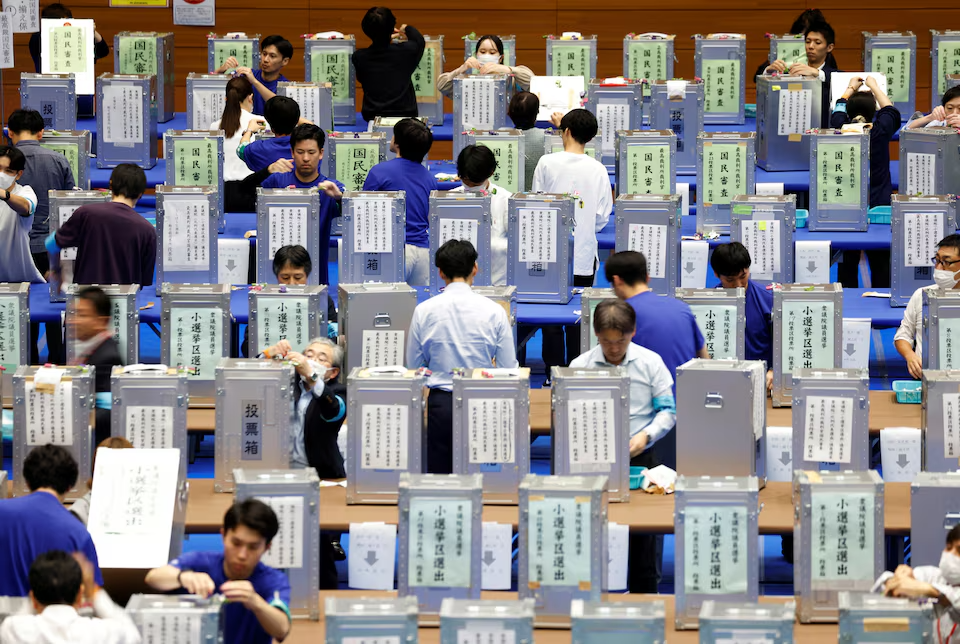Japanese Election 2024: Ruling Coalition Suffers Historic Defeat
In a stunning outcome of the Japanese election, Prime Minister Shigeru Ishiba’s ruling coalition has lost its parliamentary majority in Sunday’s national vote, marking one of the Liberal Democratic Party’s worst electoral performances since World War II. With 90% of seats counted, the LDP-Komeito coalition has secured only 192 seats out of 465 in the lower house of parliament, falling far short of the majority needed to maintain their decades-long grip on power.
The Constitutional Democratic Party (CDPJ) emerged as the biggest winner of the Japanese election, securing 135 seats – a significant jump from their previous 98 seats. This surge reflects growing public dissatisfaction with the ruling party’s handling of recent scandals and economic challenges.
Prime Minister Ishiba, who called this snap election shortly after taking office last month, acknowledged the difficulty of the campaign.
“This election has been very tough for us,”
he told TV Tokyo as early results emerged. His gamble to secure a public mandate has backfired dramatically, adding to the political turmoil that began with his predecessor Fumio Kishida’s resignation over a party funding scandal and mounting public anger over rising living costs.

Market Impact and Economic Concerns
The Japanese election results have sparked immediate concerns in financial circles. Experts predict a significant market reaction, with Japanese stocks expected to face selling pressure and the yen likely to weaken. Saisuke Sakai, senior economist at Mizuho Research and Technologies, notes that uncertainty over the administration’s continuity has increased, particularly affecting foreign investor confidence.
The political upheaval comes at a crucial time for Japan’s economic policy. The Bank of Japan’s plans to gradually shift away from decades of ultra-loose monetary policy may face new challenges, as potential coalition partners hold divergent views on interest rates and economic reform.
Coalition Building Challenges
The post-election landscape presents complex challenges for forming a stable government. Smaller parties like the Democratic Party for the People (DPP), with 22 seats, and the Japan Innovation Party, holding 33 seats, now find themselves in influential positions. While the DPP hasn’t ruled out cooperation with the LDP, the Japan Innovation Party has firmly rejected such possibilities.
These potential partnerships are complicated by conflicting policy positions. The DPP advocates halving Japan’s 10% sales tax until real wages rise, while the Japan Innovation Party pushes for stricter political donation rules – both stances that conflict with traditional LDP positions.
International Context
This Japanese election comes at a critical time:
- Occurs nine days before U.S. elections
- Raises questions about stability in East Asia
- May impact Japan’s relationship with key allies
Expert Analysis
According to Saisuke Sakai, senior economist at Mizuho Research and Technologies:
“The Japanese election results were harsher than expected for the ruling bloc.”
Meanwhile, Masafumi Fujihara, associate professor at Yamanashi University, warns that
“pushing through economic policies that include raising taxes, such as to fund defense spending, will become much harder.”
The Japanese election marks only the third time since 1945 that the LDP has lost its parliamentary majority, potentially ushering in a period of political instability as Japan grapples with economic challenges and regional security concerns.

